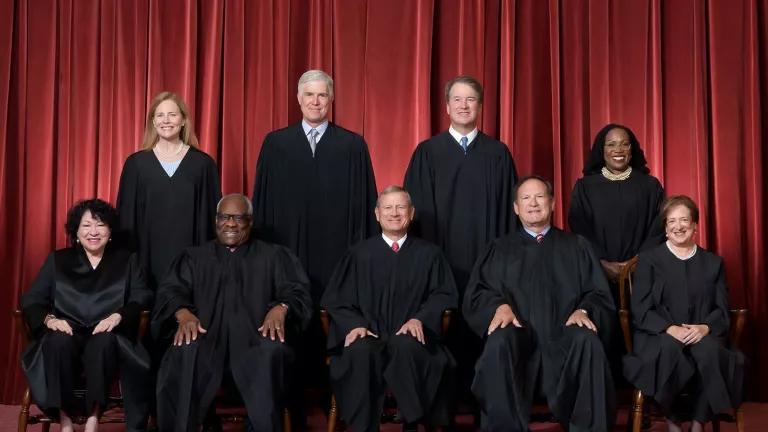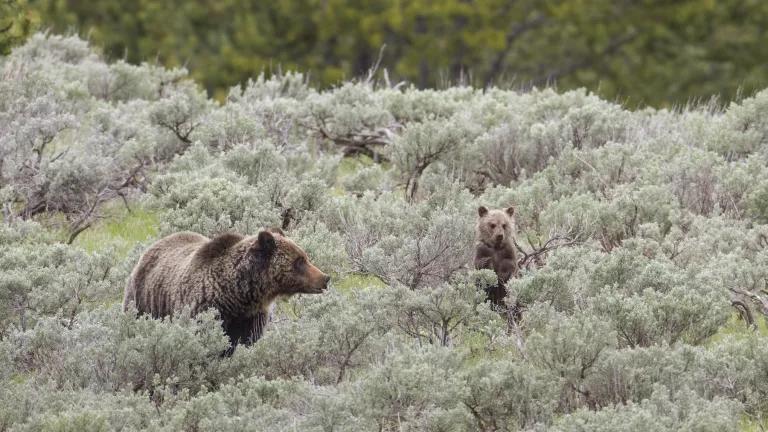Three Things You Need to Know about China's and the United States' Announcement on Ivory Trade

Last week Chinese President Xi Jinping travelled to Washington to meet with President Barack Obama. As with all meetings of two heads of State, only each country's top priorities were on the agenda--issues like cyber security, climate change, and the continued instability in Afganistan--so conservationists around the world took note when wildlife trafficking (and, specifically, the elephant ivory trade) made the list. In fact, ivory trade was included in a joint statement from both President Obama and President Xi.
In their statement, China and the United States recognized the "urgency" of combatting wildlife trafficking and promised to cooperate to craft a "comprehensive" effort to combat it. Most significantly, the statement said: "The United States and China commit to enact nearly complete bans on ivory import and export, including significant and timely restrictions on the import of ivory as hunting trophies, and to take significant and timely steps to halt the domestic commercial trade of ivory."*
So, how important is this and what, exactly, does it mean? Here are the three things you need to know:
1. For the most part, the statement reiterates previously announced policies. Both the United States and China have previously announced their intentions to enact "nearly complete bans on ivory import and export" and "to take significant and timely steps to halt the domestic commercial trade of ivory." Over the past two years, the Obama Administration has taken a number of actions to end the United States' contribution to the elephant ivory trade, including an order ending all commercial ivory imports and, most recently, proposed regulations that would greatly restrict exports and interstate trade. For its part, China announced last February that it was placing a one year ban on the import of all carved ivory items into China. A month later, China announced that it would "strictly control ivory manufacturing and trade until commercial manufacturing and sales of ivory product are ceased." In both cases, however, many details need to be filled in. The United States has issued only proposed regulations - they could change or be subject to legal challenge after they are finalized. And China's announcement did not include many details or a timeline.
2. But it is a big deal that they were reinforced by both countries' Presidents. While there may not have been a lot of new substance from China or the United States, the significance of these policies being publically affirmed by President Obama and President Xi shouldn't be underestimated. In the United States, the National Rifle Association and its allies in Congress are trying to gut every action the President has taken to protect elephants from poaching, including the recent proposed regulations. Given President Obama's public commitment to these policies, any attempt to attach a pro-ivory trade rider to the U.S. budget would now almost surely be met with a veto. In China, President Xi's commitment to end his country's domestic ivory market will surely move that policy to a top Government priority.
3. Restrictions on trophy imports are new and important. There was a bit of new ground broken by the statement. Specifically, both countries announced that they would put in place "significant and timely restrictions on the import of ivory as hunting trophies." This is a completely new statement from China, which had not mentioned trophy hunting in its previous statements on the ivory trade. The United States is currently debating how far to restrict ivory imports as part of the proposed ivory trade regulations referenced above. Trophy imports are significant issues. While relatively small in terms of total volume, if not properly controlled "trophy" hunting can quickly become a cover for commercial imports. For the Chinese, traveling to Africa to hunt elephants is a relatively new phenomenon, so China has a chance to lead the international community in banning trophy imports. The United States has historically imported large numbers of trophies. Indeed, a search of the standard database of wildlife imports reveals hundreds of trophies being imported into the U.S. each year from hunted wild elephants.
*Here is the full text of the statement: "Wildlife Trafficking - The United States and China, recognizing the importance and urgency of combating wildlife trafficking, commit to take positive measures to address this global challenge. The United States and China commit to enact nearly complete bans on ivory import and export, including significant and timely restrictions on the import of ivory as hunting trophies, and to take significant and timely steps to halt the domestic commercial trade of ivory. The two sides decided to further cooperate in joint training, technical exchanges, information sharing, and public education on combating wildlife trafficking, and enhance international law enforcement cooperation in this field. The United States and China decided to cooperate with other nations in a comprehensive effort to combat wildlife trafficking."




